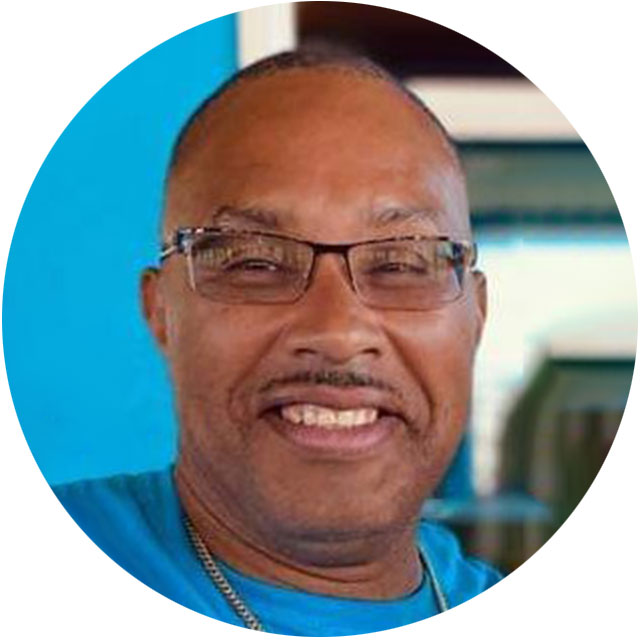
Lived experience often serves as the basis through which one has the knowledge and capacity to help those going through similar situations.
Earl “Jack” Matthews, a Certified Peer Recovery Specialist and Peer Supervisor at the Howard County Health Department, uses his experiences to reduce harm, support his clients and advocate on their behalf.
What inspired you to engage with this field of work?
“It all started with my lived experience with substance use disorder. Born and raised in Baltimore City, I went through a long tumultuous 30-year addiction to heroin, which landed me in all of the prison systems, the homeless places, the abandoned houses; many nights in the hospital from being shot up, beat up, stabbed. I’m blessed enough to help provide services to people who are just like me. I didn’t go looking for it, I was chosen for it.”
How does the work you do impact patients in the state of Maryland?
“Once I get the opportunity to share my story with people, it can’t even be measured– it has an enormous impact. Most of the people that I have the opportunity to interact with, I see in the detention center. I see them in treatment, I see them in jail, the homeless shelter, or in a meeting. When they finally want to give the recovery thing a try, the impact is big. They see me out, boots on the ground and living what I am trying to provide.”
What is the biggest challenge you faced as a Peer Recovery Specialist in Maryland in the past year? How did you overcome it?
“I like to say that I’ve become an expert at removing barriers or going around them or getting through them. But some of these new barriers today are because of the pandemic, and then the new laws– not being able to meet people in person, not being able to have people in the vehicle. Face-to-face interaction is just coming back, but for two almost three years, it was over a camera, and it’s not personal. I’m one of the people who feed off of your spirit when I’m in the room with you, I read your body language. So that’s one of the biggest barriers.
“Some of the other barriers are that for a long time, we couldn’t let people in the truck for the safe syringe program– and we still do meet people in the parking lot at the health department. So there was a lack of transportation and a lack of most places being open. Although I’ve been working throughout the entire pandemic, all the wraparound services– social services, the Department of Motor Vehicles, and clinics–were on these fixed schedules. It’s getting somewhat back to normal, but there are barriers across the services, and some of the barriers come from within the system that I’ve been designed to work for. I’ve had to develop my voice because people listen to me today.”
How do you advocate for patients in the state of Maryland?
“I’d like to shout out this organization called Impact, Tiffany Scott and Tyrell Boyd. They chose me to participate in an advocacy leadership program, and it’s one of the best things I’ve ever done for myself and my career. At the Howard County Health Department, there’s a spot put into the monthly staff meeting for me to advocate. Sometimes, it takes months; I’ll keep saying the same thing month after month. I’ll say it over and over again until they finally listen, until it shows up on the news and affects some of the people in power. I’ll say it over and over again because you’re eventually going to hear me.”
What would help build your organization’s capacity to serve and advocate for clients in the state of Maryland?
“More engagement with people who make the decisions. I believe that we should sit at all the tables– people like myself of color, and people like myself, who have lived experience with things that we’re talking about. If you’re talking about something that’s going to directly affect our outcomes, we should be at the decision-making table.”
Do you know a Maryland-based provider who we should highlight? Email Alive! Maryland at [email protected] with recommendations.
The comments provided are solely the responsibility of the presenters and do not necessarily represent the official views of the Maryland Department of Health or any of its partners.
